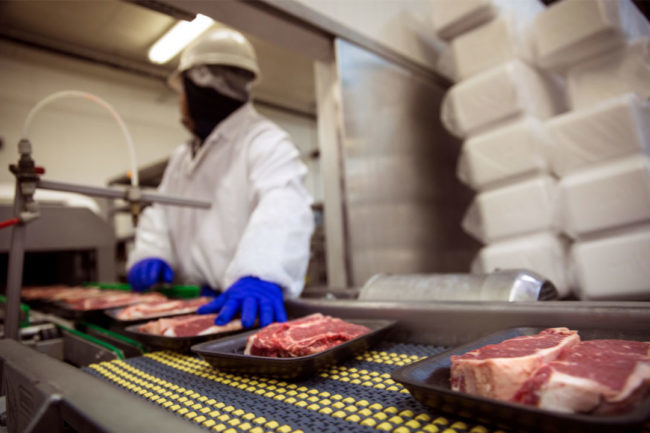WASHINGTON — Since the US Department of Agriculture (USDA) announced over $223 million in grants and loans to support small to mid-sized processing facilities, a couple stakeholders have been quick to commend USDA’s efforts.
The funds are made available in a series of three rounds. USDA already spread the first round of $73 million across 21 grant projects in 19 states through the Meat and Poultry Processing Expansion Program (MPPEP). It will distribute an additional $75 million to eight projects through the Meat and Poultry Intermediary Lending Program (MPILP), as well as more than $75 million for four meat and poultry-related projects through the Food Supply Chain Guaranteed Loan program (FSCGLP).
In response, the National Cattlemen’s Beef Association (NCBA) shared its appreciation for the funding after advocating for improved meat processing capacity.
“NCBA has long advocated for expanded processing capacity to provide cattle producers with additional options for turning their cattle into high-quality beef,” said Tanner Beymer, senior director of government affairs at NCBA. “Today, the cattle industry needs more targeted capacity in high-need areas, and we look forward to these facilities launching and expanding operations. We appreciate USDA working with NCBA to strengthen the marketplace and support America’s cattle producers.”
The United Food and Commercial Workers International Union (UFCW), which represents 1.3 million workers in grocery stores, meatpacking plants and other industries across North America, also expressed support for MPPEP.
“As America’s meatpacking and food processing union, UFCW applauds the Biden Administration and the Department of Agriculture for working to improve capacity and create a fairer, more diverse meat and poultry industry,” said UFCW International President Marc Perrone.
The group noted room for improvement in USDA’s efforts.
“The investments announced this week through the Meat and Poultry Processing Expansion Program are admirable, but they’re missing a crucial focus: workers,” Perrone added. “Any attempt to expand or improve this industry moving forward must include specific provisions for fair labor standards that protect workers and safeguards the hard-fought protections they’ve already won at unionized processing facilities around the country. The goal of expanding capacity and diversifying the amount of producers in the industry is naturally aligned with the needs of the workforce who will ultimately make these operations run. Let’s not leave those processing and agriculture workers behind and diligently build programs that prioritize their needs too.”



